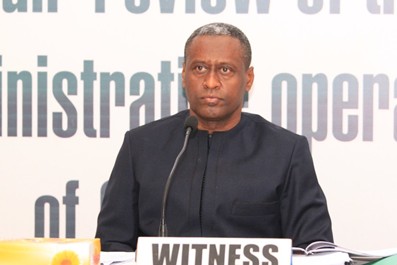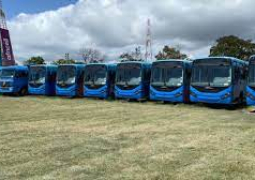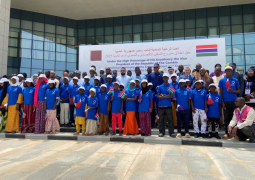
Jah admitted he was aware of the project but said he did not manage day-to-day affairs of either Espace Motors or AGIB Bank. He explained that waste management had been a key campaign issue during mayoral elections, and several councils approached Espace Motors for support.
He confirmed that KMC contacted Quantum Net verbally, not in writing to supply 19 trucks. After tendering, Espace Motors was declared the most responsive bidder. “We were called to the mayor’s office for negotiations on discounts, and I personally offered D10 million reduction,” Jah said.
Espace ultimately signed the contract with KMC after TK Motors, the only other bidder, was disqualified for failing to meet the 20% advance payment requirement.
The inquiry focused heavily on the 20% deposit clause. Documents showed the bidding process required an advance payment, but KMC pleaded financial constraints. Jah said his team agreed to waive the requirement, effectively taking on the financial risk.
“KMC told us they had many commitments and could not afford the 20% upfront. We negotiated and decided to proceed without it. We took the risk,” Jah told the commission.
Lead Counsel pressed him on whether this exposed depositors’ money at AGIB Bank to undue risk. Jah replied that he guaranteed the investment with his company’s trucks and title deeds: “If KMC failed, I could retrieve the trucks and resell them. We are a vehicle company; we take risks.”
Jah clarified that the financing was structured under a Musharaka (partnership) agreement between Quantum Net/Espace Motors and AGIB Bank, not a conventional loan. Profits were shared 60-40, with AGIB taking the larger share.
He denied AGIB had a direct contract with KMC but said the bank, as a partner, naturally pursued KMC to recover payments. “We have guarantees with Quantum Net. AGIB knew if anything went wrong, they would still get their money,” Jah stated.
Counsel Gomez challenged Jah on why Espace accepted terms that AGIB Bank initially rejected when KMC was approached directly. AGIB’s credit committee had found the deal unviable due to lack of guarantees.
“Why did you take on a risk the bank refused?” Gomez asked. Jah responded that Espace wanted to contribute to waste management solutions, had trucks as fallback collateral, and could absorb risks as part of its business model.
He insisted technical staff handled financial feasibility checks and assured him KMC could pay within three years. “I hire competent managers to do the due diligence. They confirmed KMC would pay,” Jah said, though he admitted he did not ask for detailed repayment plans.
Jah revealed that Espace’s winning bid was originally D115 million but was reduced to D105 million after negotiations with KMC. Including other trucks supplied, the total contract reached D122 million.
He explained that the company’s profit margin was D21 million over three years, shared between Quantum Net (D8 million) and AGIB (D13 million). He argued this was modest compared to potential interest earnings under conventional banking.
“If this was financed at 18% bank interest, KMC would have paid over D36 million more. We delivered the project at the lowest possible cost. The profit was small but the social impact was important,” Jah concluded.
Read Other Articles In Headlines




